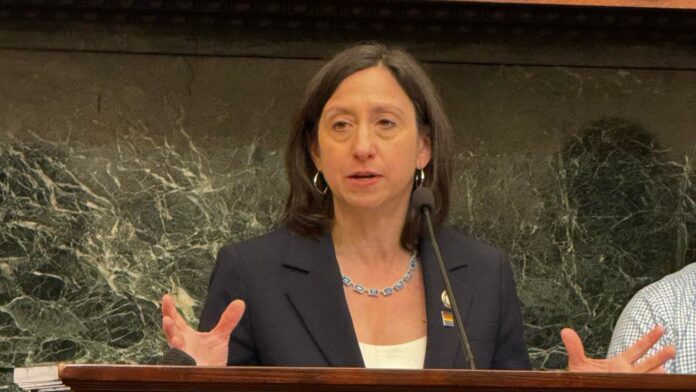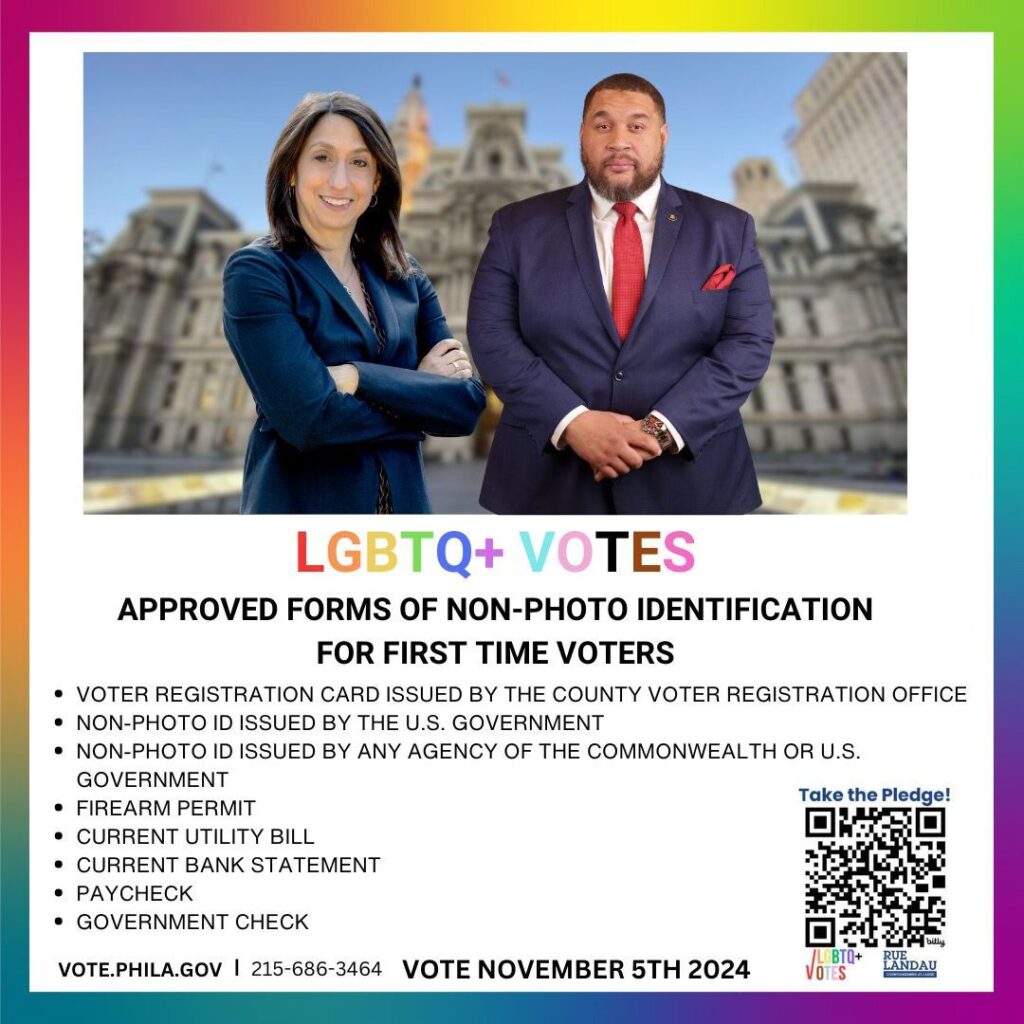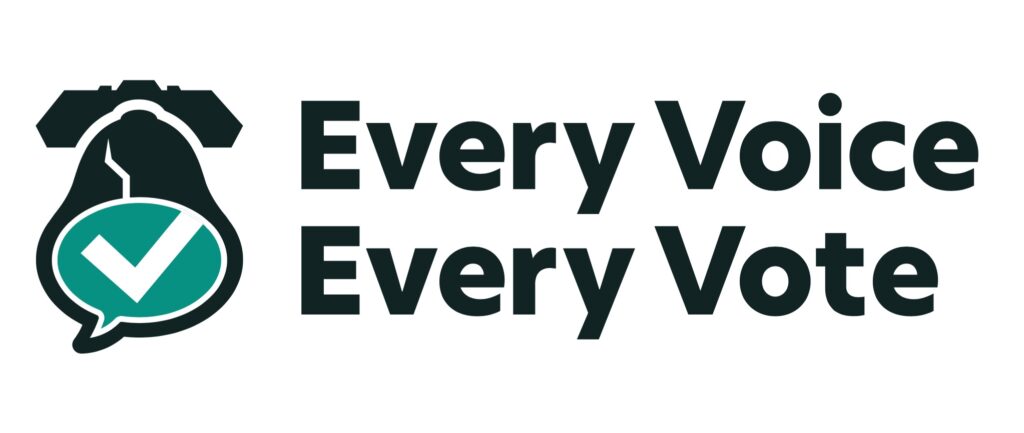
Councilmember Rue Landau, in partnership with Chairman Commissioner Omar Sabir and Commissioner Seth Blustein, launched an initiative to register 100 new LGBTQ+ voters before the upcoming election. Landau was inspired by Councilmember Isaiah Thomas who is working to mobilize Black voters and said she wants to do her part to reach her own community.
“This election is going to require all hands on deck,” she said, emphasizing the impact of its results. She noted that Supreme Court appointees — which are chosen from federal judges who are selected by the president and last a lifetime — will be able to influence the direction of the United States for multiple generations.
“Everything is on the line for us — our rights, our civil rights, our democracy,” said Landau about LGBTQ+ people. “If this election goes in the wrong direction, then we will lose it all.”
She understands that some voters — especially trans and gender nonconforming people — might be hesitant to vote because they fear harassment at the polls or don’t want to show a form of identification that displays a photo, name, or gender marker that does not align with their current experiences.
“They are fearful of what will happen when they go to their polling place — and what we’re trying to do is ensure voters that they will have a safe, easy and accessible experience on Election Day,” she said, reassuring that various groups volunteer to protect voters across Philadelphia.
She underlined that preventing or interfering with someone trying to vote is a federal crime and that harassment and intimidation is taken seriously by city officials.
She also noted that although identification is required for first-time voters in Pennsylvania, the form of ID does not have to include a photo. A variety of options — including employee IDs, current utility bills, bank statements, paychecks, voter registration cards and other forms of ID — will be accepted.
Mail-in ballots are also available for any voter who wants to use one. No one is required to provide a reason for obtaining one and all voters are permitted to utilize this voting method.
Those who choose this method must return their ballots to the County Board of Elections before Election Day. The completed ballots must be received no later than 8 p.m. on Election Day. These ballots cannot be returned to local polling places, and timestamped postmarks will not count as receiving ballots.
Mail-in voters can write in their driver’s license number or provide the last four digits of their social security number for proof of ID. If neither of these options is accessible, voters can include a photocopy of an acceptable form of identification that would otherwise be acceptable at in-person polls.
Landau explained that those who update their address after a recent move might not realize that they could be required to vote at a new polling location. If voters do not update their address, they’ll be required to vote at a polling location in their previous neighborhood — which may be inconvenient or inaccessible to them after the move.
This is why, Landau emphasized, it’s so important to understand the voting process and to make a plan for Election Day.
“We want to make sure everyone is registered at their current address, knows where their polling place is, and has a plan to vote,” she underlined.

The City Commissioners’ office is opening 10 new satellite election offices to make this process easier. Although voters will not be able to cast their ballots early, they will be able to register, make necessary updates to registration, apply for and complete or drop off absentee and mail-in ballots, learn how to use voting booths, and obtain other aspects of support in the voting process.
Landau’s team already tabled at Pride and other community events to reach potential voters. She has already registered 10 new voters and plans to be present at events that aren’t LGBTQ-specific — such as housing fairs, neighborhood events and back-to-school nights — to ensure she’s reaching as many people as possible.
“The LGBTQ voting block is growing,” Landau said, alluding to a 2022 report published by the Human Rights Campaign and Bowling Green State University, which projects that LGBTQ+ people will make up one in seven voters by 2030 and one in five by 2040. In several swing states, the number of LGBTQ+ voters will double by that time.
While Landau is excited by that idea, she isn’t too focused on the distant future. She’s more concerned about this upcoming election — and she believes LGBTQ+ voters can make a difference now.
“Pennsylvania is going to be one of the most important states to win for this election and for our community,” Landau said. “This election is the moment that we can continue to make gains or go painfully backwards — further than many of us have seen in our lifetime.”
To take Rue Landau’s pledge for voter registration, visit https://bit.ly/3XK0Buc.

